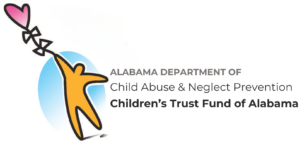With each new year comes new resolutions. People often take the time to reflect on goals and to plan for ways they can redirect their focus for the upcoming year. I think just about everyone I know has made a New Year’s resolution at least once in their life. I rarely see people sticking to those resolutions throughout the entire year, though. Myself included. 
There are many reasons why we eventually cease to focus on resolutions. One reason that I will discuss in this post is a concept that everyone experiences and is impacted by on some level: burnout. Burnout can go in a dozen different directions; it can lead towards high turnover rates in careers, towards mental health problems like depression and anxiety, and even towards physical health issues.
We will discuss burnout and what comprises it, but we will also discuss how stress plays a role in the experiences I listed above. Does feeling burned out automatically lead to you quitting your job or having that tension headache? No, but the stress caused by burnout and maladaptive approaches to that stress definitely can lead in those directions.
What is burnout?
I highly recommend listening to the Unlocking Us podcast led by Brené Brown, a lifelong social worker and researcher. Her work in the mental health field has been inspirational for millions over the past several years and focuses on subjects like vulnerability and working through shame. In one episode, she talks with authors/sisters Emily and Amelia Nagoski about their book entitled Burnout, and I will cover some of their highlights in this post.
In the podcast, the sisters talk about the different parts of burnout: emotional exhaustion, a decreased sense of accomplishment, and depersonalization. They describe depersonalization in more detail as the “depletion of empathy, caring, and compassion,” and how this often plagues people, who are stressed and in caregiving roles and/or careers. Emotional exhaustion is the part of burnout I want to cover in more detail today because of how extensively people are affected by this.
 How do I know if I am emotionally exhausted?
How do I know if I am emotionally exhausted?
First, let’s discuss emotions. Many people I have encountered have never been adequately taught about emotions either in school or in developmental years as children. In fact, one cultural aspect of our society is the perspective that emotions are cumbersome and taboo to discuss (thankfully, there appears to be a positive trend towards openness with mental/emotional health). People tend to either dwell on emotions in unproductive ways, or we tend to suppress them and ignore them in an effort to get them to go away. I really enjoy how the authors define emotions, because it offers a different, more realistic perspective of our feelings and our experiences with them. They define emotions as “involuntary neurological responses” within our nervous system that have “a beginning, a middle, and an end.” I could go on and on about the importance of perceiving emotions this way and how it leads to higher levels of emotional intelligence and greater satisfaction in life, but we will save that for another entry. Sometimes recognizing the science behind feelings helps take some of the stigma away. When we do not allow emotions to follow their course through to the end, this is when emotional exhaustion builds to the point of burnout.
One message I really enjoyed from this podcast episode is the reminder that there is a difference between the emotion and the trigger that activated the emotion. It makes sense that we would turn our attention to the trigger as part of the problem that needs solving in order for us to feel better. However, we also have to pay just as much—if not more—attention to the emotion itself. Imagine situations where you may find yourself thinking “I shouldn’t be feeling this anymore” or “Why does this still bother me?” Often, trauma and grief experiences bring the “shoulds” out in people. When it comes to emotions, there is no productive way to focus on what “should” or “shouldn’t” be happening in those processes. It does not feel pleasant to focus our attention on unpleasant emotions, but often those feelings linger well after the trigger is no longer present.
If you need more of a push to buy in to emotional processing, consider the physical toll that stress takes on our bodies. It is helpful to view stress itself with the same definition used for emotions: a chemical process occurring in our bodies that, if prolonged, leads to a host of issues like cardiovascular and digestive problems. Forget the idea of “de-stressing” because, as the Burnout authors discuss in this episode, that is only one part of a stress cycle. We have to help our bodies complete stress cycles by using different coping strategies to manage the leftover effects of the stressor(s).
 So, what do I do?
So, what do I do?
The Unlocking Us podcast episode takes a wonderful turn towards the end by reflecting on specific methods and skills that can be practiced and lead to stress cycle completion over time. Because stress and emotions are body responses, the authors point out that speaking body language tends to be the most effective way to complete cycles. They recommend using any form of physical movement—even simply stretching for a few seconds—to help move through stress and difficult emotions. Breathing techniques are effective because by focusing our attention on our breaths, it affords our minds a healthy distraction from thoughts that are likely exacerbating our stress. Even if it feels too overwhelming or out of your control to redirect your thinking, the breathing will still be effective for slowing down your body’s responses to stress.
Other methods for completing stress cycles involve signaling to your body that you are safe from the threat (i.e. whatever triggered your stress cycle), and connecting with other people in positive ways helps reinforce messages of safety. These connections do not have to be too planned out; they can be simple interactions that occur in our day-to-day lives. The current pandemic-related restrictions present in our lives make this more challenging, but finding ways to connect with others is still achievable through virtual means (Zoom coffee date, anyone?). Still, when human connection feels lackluster, creative expression can be an effective approach to use while moving through a stress cycle. This opens the door to dozens of opportunities where we can channel our stressful feelings into creative energy, which helps us connect with ourselves on a deeper level.
Unfortunately, we are usually not taught about stress cycles and ways to complete them in early education, which means most of us carry around incomplete stress cycles as we grow older. It feels disheartening to think that we have so many maladaptive habits to work around, but the goal is not to reach perfection with coping skills as soon as possible. In fact, the goal of perfection is unattainable. So, think smaller: if you try some of these methods and your stress level seems to be reduced from a 10/10 to a 9/10, that is a win. To end with the authors’ words: “Wellness is not a state of being. It is a state of action and the freedom to oscillate.”
Blog written by Melanie Childers
Melanie is a Licensed Professional Counselor, who received her Master’s degree in Clinical Mental Health Counseling from The University of Alabama in 2015 with an emphasis in Marriage and Family Therapy. She has over 5 years of experience working with those who struggle with addiction and with couples and families. She is trained in EMDR therapy has experience in working with people in the LGBTQ+ community. She will guide you as you embark on your journey to become your best self, find meaning in your life, and strengthen your abilities to cope with hardships. Melanie enjoys playing guitar, spending time with her pets and friends, and creating artwork. She is a counselor with Lifeline Solutions, LLC, https://www.lifelinesolutionsllc.com/









